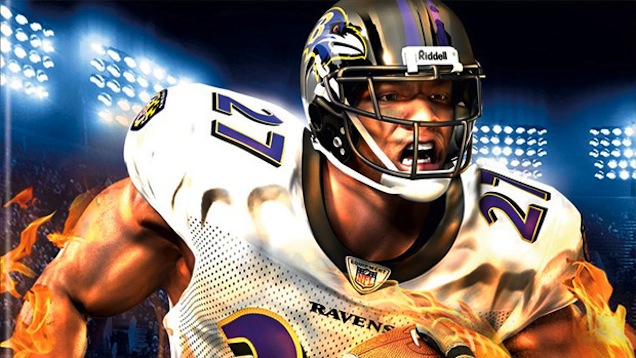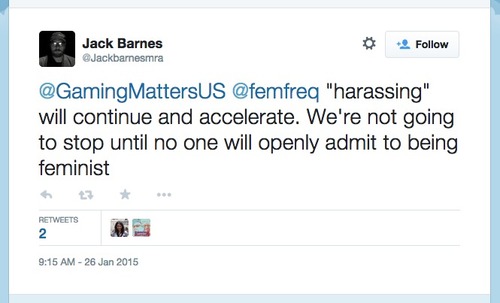Minecraft: cultural phenomenon, powerhouse in online gaming, bedrock of young gamers’ experience and learning, and now, a hotbed of abuse and playground for predators, according to a recent piece on Motherboard by Matthew Broomfield. Broomfield details the exploits of YouTuber LionMaker, who was, and is, befriending and exploiting children as young as 12 for sexual images and chat. In the story, LionMaker approached the then-12-year-old Chantelle Wiseman and 16-year-old Stephen Cheenks and offered them money for nude photos. He also tweeted nude photos of another underage girl, and claimed to have had sexual exchanges with her on Skype. LionMaker, aka Marcus Wilton, is painted in the story as a classic predator, finding vulnerable young fans and drawing them in. But there’s another piece of the story as well, seen here in Cheenks’ comments:
‘LionMaker is very good at making people feel sympathy for him,’ he told Motherboard on Skype. ‘I used to go through serious depression, and he’d tell me that he had the same feelings. We would say gay things and joke around, but that was just acting like two really good bros, you know? Even when I wasn’t joining in, he would constantly say inappropriate things, that he was going to barge into my house and rape me. I was creeped out, but I didn’t think anything too much of it.’
There’s no part of this that isn’t horrifying—the grooming, the escalation, all of it—but it’s the last part that really sticks out to me, and it’s something not much addressed in the Motherboard piece. Why wouldn’t an online conversation peppered with rape threats alarm a 16-year-old boy? Why isn’t that teased out more in the story about it? Why, because that’s just the internet. That’s just gamers. That’s just how things are.
Hate speech, often filed away as “just” trash talk, has been rampant in online gaming as long as online gaming has existed, but it didn’t start there; trash talk has a long and storied history in tournaments, tabletop, and more, and while trash talk is common in dozens of other fan and hobbyist communities, there’s a measurable difference between ribbing a friend to their face and creating a culture that hinges on insults, threats, and harassment as its primary mode of communication. Let’s not forget the arguments that trash talk and sexual harassment is a bedrock of the fighting games community, or some of the more widely known controversies around hate speech and trash talk in gaming, like death threats, serious or not, lobbied against schools, or claims that trash talk makes better players. It’s hard to argue that some form of harassment, whether it’s intentional or not, has become a usual occurrence in gaming and gaming communities, not just in these examples, but on social media, in comment sections on gaming websites, and yes, in gaming itself. Why simply disagree when instead you can wish cancer on someone while rattling off a string of sexually charged epithets?
Ignore it, we’re told; it’s just part of things, and often, we do. While there’s been a lot of pushback against harassment in recent years, we all have our levels and thresholds for what we consider acceptable and easily ignored and what we consider over the line, and within that is an inherent level of acceptance. “Yeah, yeah, it wasn’t a real rape threat, so whatever.” And that may be exactly what is allowing these situations with predatory minor e-celebs to foster. Why else would a young man just take rape threats in stride?
This isn’t a situation of meanie feminists who’ve come to take away games, censor fun, and ruin everything that’s good about gaming (she says with heavy sarcasm). This is normalized abuse, damaging to young gamers who are just trying to hang out in fan communities, and we’re all complicit.
In the Motherboard piece, a spokesperson for Microsoft, which acquired Minecraft in 2014, said, “Helping promote a safe online experience for children has always been a priority for us. We encourage parents to play an active role in monitoring their children’s online activity.” But in many of these cases, as reported by Motherboard, the parents were involved.
But [Chantelle’s mother Suzie] slowly realised that something didn’t add up about his story. In particular, it seemed suspicious that LionMaker’s arrest would neatly coincide with the blackmailer hacking his account. She pursued LionMaker through all the channels available to her. The Swedish police took a look at the case, but said they didn’t have enough evidence to act on it. Wiseman found herself blocked on Twitter and muted on Skype whenever she tried to contact LionMaker. On one occasion, she found herself watching LionMaker interacting with children at a virtual charity meet-and-greet on Twitch, but was muted on Twitch’s chat function when she tried to join the conversation. Her daughter was also accused by LionMaker’s fans of faking the Twitter DMs where he asked for nudes—something Wiseman says her daughter found as traumatic as the initial approach itself.

The parents tried to spread the word, to contact the police, to end the situation, and sure, maybe they can pull their own children out, but there’s always another young fan to take that one’s place. So what then? What next?
The tragic case of LionMaker–who is still active, uploading several videos in the last few days, though the most recent is described as old content while LionMaker recovers from “defamations and attacks on his channel”–is not unique in the streaming community. The Motherboard piece explores Lee Carson (L for Leeeeee), convicted for sexual misconduct and also still an active producer of Minecraft videos; Craig Thompson (Miniladdd) explained away trading sexual messages with a 14-year-old girl on the grounds that she was “suicidal,” apparently an acceptable justification for such remarks as “Your breasts are really perky,” he wrote. “The fact they don’t sag is a giant bonus.” YouTuber Aaron Ash (Yamimash) was accused of similar interactions with the same young girl, who claimed he sent her naked pictures, but in a video response on his channel, he claims there’s no evidence of any real misconduct on his part. As Broomfield explains:
Yamimash (real name is Aaron Ash), a 26-year-old YouTuber with 1.3 million subscribers who plays Minecraft and other games on his channel, was accused of sending obscene messages and photos of himself to a 14-year-old last year. He took to YouTube to clear his name in a statement rank with victim-blaming. While he admits that he flirted with the 14-year-old, and that the police stepped in to “warn” him against “grooming” young children, he argues that the child was “manipulative” and “trying to entice him,” and that she “looks a lot older than she is…I felt bad for her so I spoke to her for a while,” he claimed. “She wants to be the victim.” Fans commenting on his YouTube videos appear to accept he was sexting the child out of a spirit of charity.
The production and presentation of Minecraft videos, meanwhile, continues to be a multi-million dollar industry with no real signs of slowing down. We’ve written often on our children here at NYMG, and their love for certain Minecraft e-celebs (though none of the aforementioned YouTubers), and while our children are too young for social media, my own child is already beginning to ask about events like Minecon and getting involved in the larger fandom. I’m an active parent; I watch videos with him, and I sit with him when he plays anything online, but active parenting didn’t stop what happened to Chantelle Wiseman or others, and there’s no guessing at how many stories haven’t come to light, thanks to general teenage secrecy, protective predatory behaviors, and the acceptance of damaging discourse in the games community, and that’s what takes this beyond the Minecraft community and into the larger sphere of gaming as a whole, and the impact of acceptance of damaging speech.
Murder Games, a recent BBC documentary, details the story of Breck Bednar, a 14-year-old boy who was murdered by online predator Lewis Daynes. While the situation that led to the crime is different in many ways than the above scenarios, there are plenty of overlaps as the relationship between Bednar and Daynes developed, as described in an interview with Bednar’s mother, Lorin LaFave, in The Guardian. Bednar’s mother describes the victim as a friendly, sweet kid with geeky interests, and when the older, sophisticated Daynes came into his life, claiming to be a millionaire entrepreneur who could get him a tech job. While we don’t know everything that was said between Daynes and Bednar, there are some hints:
It became harder to get Breck offline, to do his homework or his chores. (“Lewis says I shouldn’t have to do chores as it’s the triplets who make the mess.”) When Lorin walked into Breck’s room, Daynes now sent images of wicked witches or goose-stepping Hitlers on screen. “I’d be telling Breck to get offline and he’d literally have Dayne’s voice in his earphones telling him not to listen.
Not as obvious as “I’m going to come to your house and rape you,” but the same exaggeration and hyperbole that marks so much online discourse; after all, bringing Hitler into online argument is so common there’s a name for the phenomenon. And it’s accepted, eye-rolled away. Not a big deal. When LaFave tried to get help for her son, no one understood or took it seriously. “They’d say, ‘Oh, that’s what boys do.’ Or ‘My son was a gamer – he grew out of it.’”
Bednar didn’t grow out of it; Daynes lured him away from home and killed him in 2014 in particularly grisly fashion. Once again, the effors of an involved parent led to nothing. Support services failed to act. Other people did not take the signs seriously. Why? It’s just gaming. It’s not important; we just act this way, talk this way, and that’s how things are.
I’d like to think that the gaming community has the potential to be something more than a training ground for sexual assault, abuse, and even murder, and certainly, these high-profile cases are outliers. But considering the harassment we write off on the daily, I find it hard to accept the number of people who want to consider online abuse normal. Yes, it’s a big deal when someone is dogpiled on Twitter, or in YouTube comments, and yes, online harassment and abuse is a real phenomeon. It’s very real to LaFave, Wiseman, and it’s likely they won’t be the last who are forced to carry the burden of tragedy.




